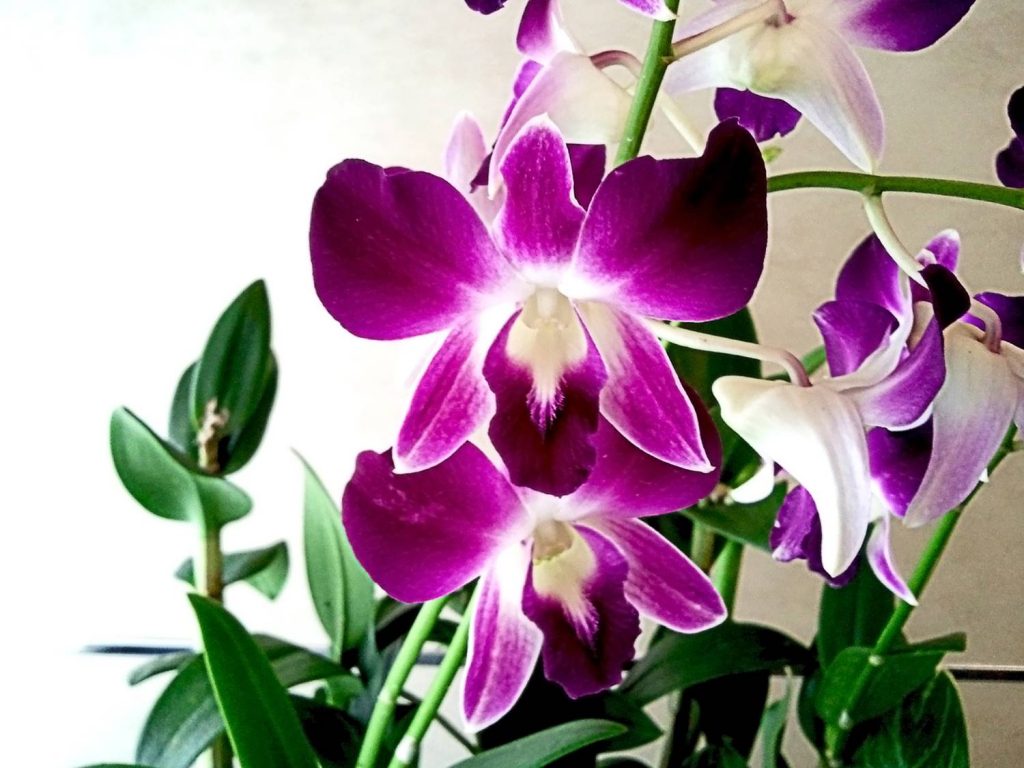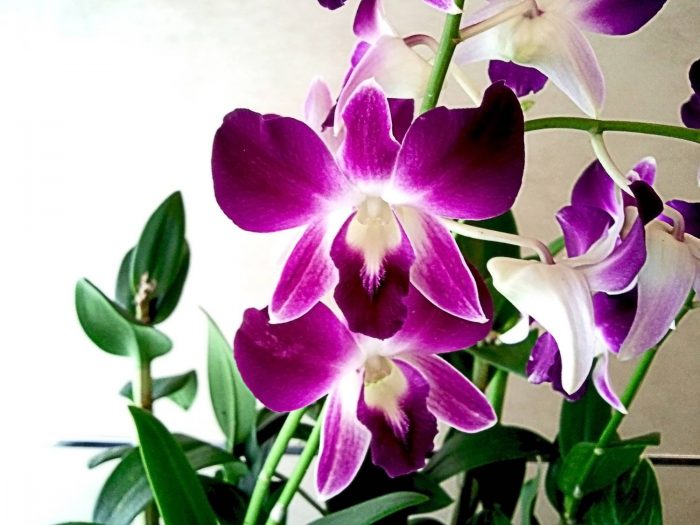
My 13-year-old son, Dominic, is very sensitive to sensory stimulation. He’s been like this since he was born. People called him a “serious baby.” He’s the kid who starts to wither in arcades because of the loud noises and bright, flickering lights. Until a few years ago, he hated bowling because the crashing of bowling balls knocking against the pins made him dive for cover. He developed migraines at the age of 9; these are brought on by over-stimulation and experiences that feel stressful for him.
He even seems to taste and smell more acutely than my other children. My husband thinks he might be a “supertaster” – a person with an unusual sensitivity to taste, a characteristic shared by some top chefs. Supertasters can taste bitter foods in particular more intensely than other people.
Some of our older relatives think he’s just fussy and they wonder whether I’m coddling him, but I believe my son might be what some experts call a “highly sensitive child”: a child who notices more in his environment and has to reflect long and hard before acting. For a while I thought he might have sensory processing disorder, but he seems not to fit the profile of a child with SPD other than his sensory sensitivity. When I came across discussions of highly sensitive children, my interest was piqued.
I don’t know if I’m walking down a dead end here, but I’ll continue paying attention to my son and learning more about high sensitivity until I can rule it out as an explanation for his struggles. I hesitated to write about it all, because I’m finding so much contradictory information, but I decided to share just a bit about what I’ve learned in case it helps somebody else.
So, what’s a highly sensitive child? If my son really is extra sensitive, how do I move forward as his mom? What can I do help him thrive? Shouldn’t I just force him to face his sensitivities so he learns to adapt?
NOTE: I am not a medical professional or a psychiatrist who can diagnose my own children let alone somebody else’s children. I’m sharing here some information I’ve uncovered as I try to better understand my son. Some of the symptoms seen in highly sensitive children are also present in kids who are on the autism spectrum. High reactivity is seen not only in highly sensitive kids, but also in kids with serious attachment wounds. So we can’t diagnose our child based on a blog post.
The Orchid Child
Apparently, one in five children falls into the category of extra sensitive. They are more affected by stress than other children; they become easily overwhelmed, alarmed, and intense. They are passionate in temperament and are highly attuned to their environment, specifically through their senses. Developmentalist Deborah Macnamara says, “While the type and receptivity differs they will show heighted sensory responses in visual, auditory, touch, taste, smell, kinesthetic, and emotional areas.”
While my son seems to react most to sounds and tastes, other highly sensitive children can’t handle tags on their clothes, feeling their socks between their toes, or the feel of particular blankets and pillows. Still other kids are very emotionally sensitive: they can sense the changes in people’s moods and are deeply affected by sad stories. (I believe my youngest child, Lydia, might be a highly sensitive child whose sensitivity comes through in her emotional astuteness.)
Researcher Tom Boyce uses the term “orchid child” in reference to highly sensitive children. I love this term, because to call these kids “highly sensitive” doesn’t always capture what is so special about them, and it sounds slightly negative. I do kind of resist these labels; I don’t want my son to become identified with a label or with his sensitivity. But the term orchid seems appropriate to describe these children who can not only thrive in spite of their sensitivity, but because of it.
You see, it turns out that while orchid children do wither in adverse circumstances compared to “dandelion children” (you know, those tough little buggers), Boyce found that orchid children also surpass their dandelion friends in terms of health and development when environmental conditions are right. In other words, while they wither more easily in the wrong circumstances, they also thrive and bloom better in the right circumstances compared to the average kid.
To describe these children as orchids also highlights another truth: sensitivity is not a disorder; it’s a gift. Many innovators, creative artists, and great thinkers are orchid people. Carl Jung, Joseph Campbell, Abraham Lincoln and Eleanor Roosevelt are believed to have been orchids. Orchid children are a gift to their families and they can grow up to be blessings to the Church and their communities, because they are often so astute about what’s going on around them and empathic about the discomfort or suffering of others. They just need a chance to grow up in the right conditions that allow their beauty to unfold.
Conditions for Raising a Healthy Orchid Child
What are those “right conditions”? At the outset, I want to say that all children need and deserve these conditions, but orchid children in particular need them. Here I’m bringing together some of the parenting advice I read by Deborah MacNamara, Maureen Healy, and Elaine Aron. They offer great tips for raising orchid children who can bloom.
1. Understand Your Child’s Unique Limits
Macnamara points out that “[w]hen environments, relationships, or experiences are too much for a sensitive child, their caretakers need to read the situation and protect them accordingly.” The more sensitive the child, the more easily they can become stirred up, even in situations that wouldn’t bother average children. We have to understand our unique child and what feels too big or too much for him.
Orchid children likely need more quiet alone time than other children. It’s hard to say no to invitations for parties and playdates, but I have to limit Dominic’s social time for his own well-being. If he has a group class, I have to build in downtime afterward so he can come back to himself. Maureen Healy, who is herself an orchid person and an expert on orchid children, recommends some calm time every day for orchids. This calm time can be spent with family, but some children may need to be physically alone at some point every day in order to cope and process all the stimulation around them. For large families, your orchid child may enjoy a personal quiet space like a “peace tent” where he can go to be alone.
2. Stretch Your Child Gently Beyond His Comfort Zone
While we need to recognize our child’s limits, we don’t want to shelter them completely from challenges. I’ve always said that real growth and learning happens somewhere in between what’s too easy and what’s too hard. While we do want to read situations to ensure our orchid children aren’t becoming overwhelmed, we can encourage them to face challenges so they can grow strong roots. Sometimes our orchid child just needs a little support to face something that might feel too big to him, but we know he can handle it.
Orchid children tend to avoid their triggers, and it’s understandable that parents want to shield their children from upset, but we can find ways to lead them through their fears. Again, we do want to end playdates or encounters when we know enough is enough, but we can’t avoid them altogether.
Sometimes this means we take baby steps. If our sensitive child avoids parks, but we know she really wants to go, we drive to the park, but maybe the first time we sit in the parking lot and talk about how she’s feeling. The next time, we stay for fifteen minutes. The important thing for orchids is that we don’t push; we invite. We can also come at challenges sideways. So, we read a book about going to the park, and invite the child to talk about fears or concerns.
3. Practice Gentle Discipline
Highly sensitive children need structure and limits like all children, but they are more wounded by harsh discipline methods than other kids. I am not a fan of spanking or shaming for any child, but orchids will internalize the damage caused by these discipline methods far more deeply than other kids.
Elaine Aron points out that children can’t internalize a moral lesson when they are either over- or under-aroused. We have to be clear about our expectations, remind our children firmly of our expectations when they are headed in the wrong direction, but we can do so gently (without yelling or threatening). Basically, we want to get their attention, but not scare the living daylights out of them.
When discipline is needed, Aron recommends using only logical consequences that are related to the behavior (for example, putting away a ball that was kicked inside the house). She recommends being consistent, as unpredictable consequences can make orchid children very anxious.
The good news is that highly sensitive children seem to respond extremely well to this more positive, gentle approach to discipline. In experiments with young highly sensitive children, researchers found that these children are advanced in their internalization of morals. “When alone, with no risk of any external punishment, they were significantly less likely to do things their parents told them not to do. . . [T]his was partly due to their tendency to avoid risking criticism or punishment, but also their greater ability to notice what is happening, reflect, and inhibit their behavior” (The Highly Sensitive Child, 127).
4. Match-Making to Adults
All children can develop defenses in response to wounding experiences with their parents or other adults (or other children, for that matter), but orchids have a harder time developing the tough shell it takes to survive mistreatment or even just misguided treatment. This means we need to match-make our child to the right teachers and leaders. If a teacher or coach is too harsh on our child, we need to step in to enlighten the leader on how best to handle our child, or we should remove our child from that environment.
When he was 9, Dominic had a karate coach (a sensei) who used shaming in the dojo to punish kids who didn’t stay on task. A few times I heard the sensei ask Dominic in a harsh tone, “What’s wrong with you? I just taught you this last week. Get with it.” Some kids will let comments like this role off them, and they will rise to the occasion, but Dominic felt it deeply. He very much wanted to please his sensei, but he became increasingly anxious while in the dojo. It was during this time that his migraines started. It might have been a coincidence, but likely not. I required Dominic to continue karate for longer than was probably ideal for his well-being. I didn’t want him to be a quitter; I wanted him to learn how to advocate for himself and how to handle it when an adult misunderstands him. But really it was too much for a sensitive nine-year-old kid to handle.
The best we can do for orchid children is to love them generously. You can never nurture or love your child too much. Spending time together, reminding him of his strengths, delighting in his company, helping him find his talents, and guiding him in deepening his faith will go a long way toward creating that optimal emotional environment for an orchid child to bloom.
Resources
The Orchid and the Dandelion: Why Some Children Struggle and How Can Thrive by W. Thomas Boyce. This is a new title! Can’t wait to read it. “In Tom Boyce’s extraordinary new book, he explores the ‘dandelion’ child (hardy, resilient, healthy), able to survive and flourish under most circumstances, and the ‘orchid’ child (sensitive, susceptible, fragile), who, given the right support, can thrive as much as, if not more than, other children.”
The Highly Sensitive Child by Elaine Aron. The first book to identify a unique inborn trait of “high sensitivity” in children. “HSCs are born deeply reflective, sensitive to the subtle, and easily overwhelmed. These qualities can make for smart, conscientious, creative children, but with the wrong parenting or schooling, they can become unusually shy or timid, or begin acting out. . . But raised with proper understanding and care, HSCs are no more prone to these problems than nonsensitive children and can grow up to be happy, healthy, well-adjusted adults.”
Is My Child Highly Sensitive? Questionnaire for curious parents.
Highly Sensitive or Sensory Processing Disorder? This is a good place to start to tell whether your child is highly sensitive or has sensory processing disorder.


Thank you for this! Much of what you are saying was said to me while we were working with experts in helping my 11 yr old son. He was clearly intelligent (based on both testing and observation) but we weren’t sure about other areas, where he had clear struggles. All those saw him and worked with him knew he wasn’t on the spectrum but he was definitely ‘quirky’. They used similar language as the experts you discuss and suggested some information on multiple intelligence theory which has been helpful as well. I agree, completely, with you about loving our children thoroughly and completely and being their advocate when we witness their struggles. This is especially true when they are younger as there is time enough to see if some of their issues might be resolved over time and maturity or remain a constant part of their amazing personalities.
Thank you so much for sharing your experience!